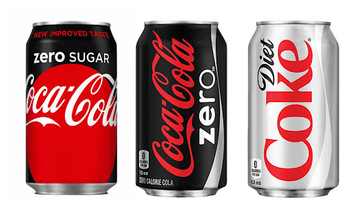On 2nd Feb 2022 — Facebook, or as they would like to call it Meta now, announced the gruesome, first-ever, daily user drop in the 18-year history of the social giant.
Half a million users. A whopping half a million users stopped using Facebook in the last quarter of 2021.
And as a result of this news, the company lost about 26% of their share value i.e. $232 Billion the following day.
So to put things in perspective — Reliance Industries is India’s largest organization with a market share of $213.22 Billion.
That big of a loss means wiping out the entire Reliance Industry, from the face of the earth.
Although the user drop of half a million users doesn’t seem like a huge deal for us — for the metric-driven company whose user base has always had a long run towards growth, this is a big, big deal.
The Dissection The reason could be anything this first, frisky round of trembling could be anything.
The new rebranding? Maybe. The growing competition like TikTok? Maybe. Facebook’s struggle of being relevant to the younger users? Maybe. Or all the whistleblower fiascos and the issues with the SEC? Well, Maybe.
We never know. And maybe we never will — but what we know is that Meta has, and still relies heavily on their users (indirectly) and advertising revenue (directly) for most of their revenues.
And with the crumbling downfall of their Daily Active Users, Mark and his team might have received an unfortunate wake-up call — to iterate, and do something new, and get a new CashCow.
After all, being entirely dependent on the advertisement revenue is not a good idea for an organization as big as Meta.
They tried to take on TikTok with Reels, and Mark called it their fastest-growing content format so far, but it's still at a nascent stage — and they need something substantial until MetaVerse becomes a thing in the distant future.
The Lesson Many businesses, small, big, and giants face this bottleneck every once in a while in their journey — where their business comes to a standstill. Facebook is just another, but a big example.
And it is at that point when businesses realize that they shouldn't get too dependent on one single business model alone.
See the idea is pretty simple — if you put all your eggs in one basket, you never know when that basket might be stolen, or gets broken, or even worse, becomes irrelevant — as it happened with Meta.
This is why it is important to keep on evolving your business model, particularly your Cash Cows. After all, your business model is not something that you write once — and bury it away.
It’s essential to revisit your business model periodically, check on its performance, question yourself & rationalize. - How did it perform in the last quarter? - Why didn’t it work as planned? - What can you do differently now? - How to improve the performance in the future?
These questions will help you envision, and then execute — the kind of business model that you want to create, or should create in order to stay fruitful in the longer run.
You see, as Facebook goes down — people automatically gravitate towards Instagram and WhatsApp, as these social media platforms offer a much more tailored user experience, platforms that are more relevant to us.

And Even for the Diet Coke lineup — they have 5 different flavors because they just can’t rely on the sales of Coke alone in this ever-changing, getting-healthy environment.
And Google is no different. Although Google Ads accounts for 80% of the revenue that the company generates, they are other (massive) sources of revenue too for the tech giant. Some of them are:
- Google Cloud Services earned them $18.5 billion in 2021.
- Their hardware services, such as Google Pixel smartphones, tablets, laptops, earbuds; Google Nest smart home products; and Chromecast.
- Google Playstore
- YouTube Premium Content
- YouTube TV
The Conclusion
Considering the Meta fiasco — it would be safe to say that it’s important for businesses nowadays to continuously evolve their business models with the changing times, and user needs.
It’s important to focus on the revenues and monetization — but how we are procuring that is equally important too.
Here at Illuminz — we have been in the industry for 13+ years, and have provided consultation to numerous businesses from all walks of life. In case you feel that you are facing a bottleneck, or are looking for any kind of guidance — feel free to get in touch with us.


